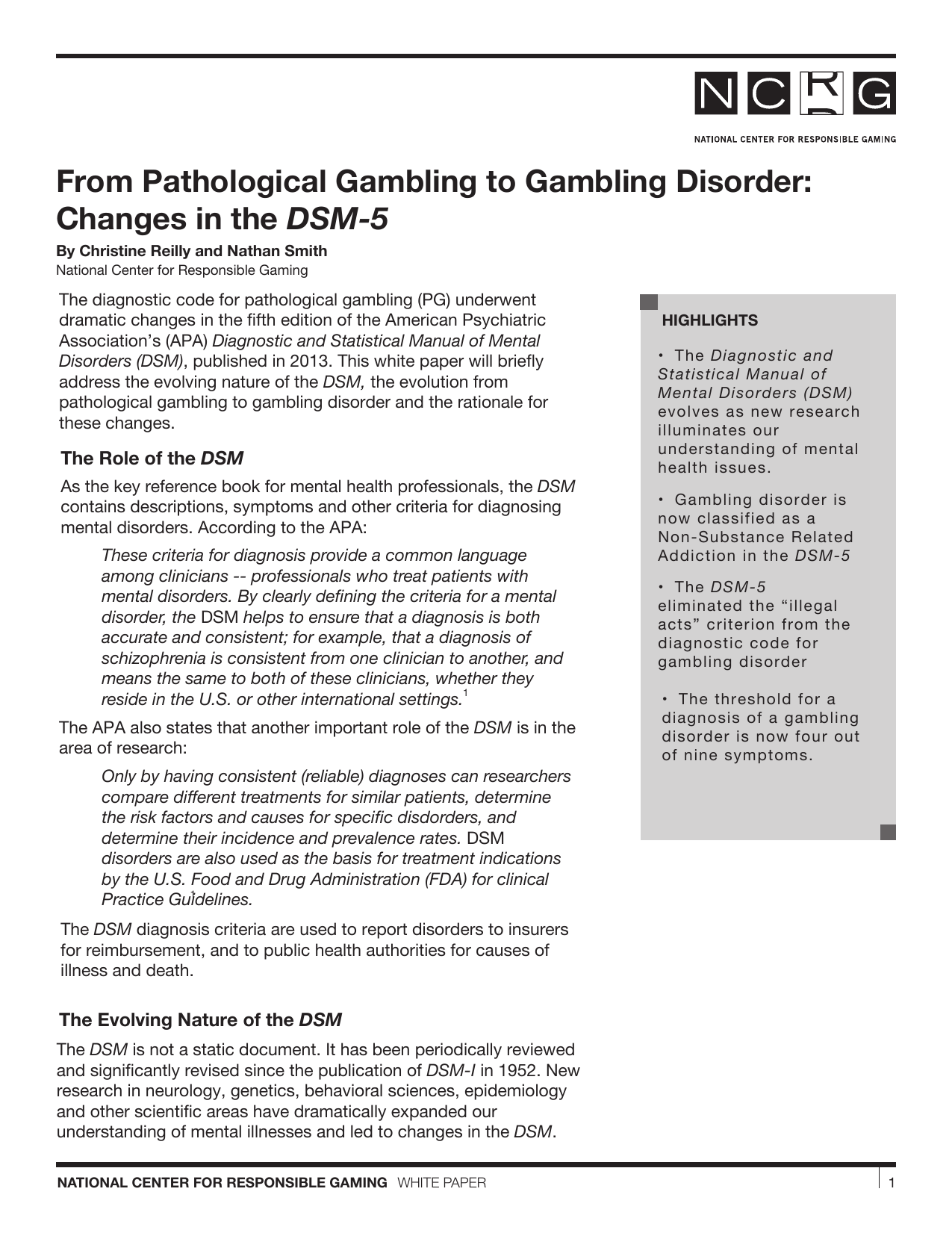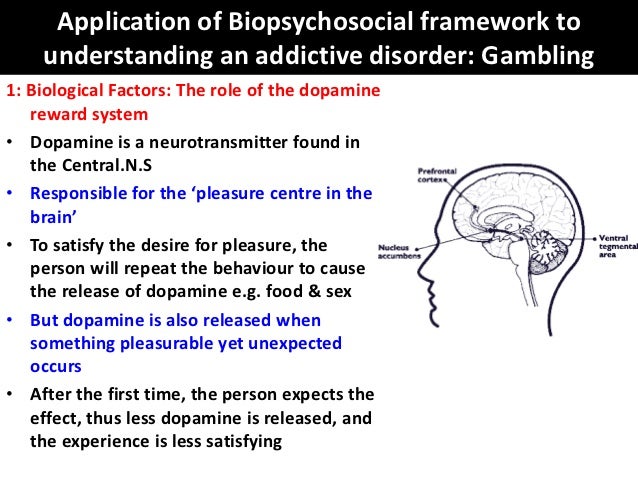Pathological Gambling Disorder Definition
Whether talking about newspaper employees who have a conflict of interest due to borrowing to pay off gambling debts, people who defraud banks and associates, or athletes who bet on games in violation of league rules, there should be no general moral or legal recognition of compulsive gambling disorder as a valid reason for such behavior.
Gambling addiction, also known as compulsive gambling, may be a type of impulse-control disorder. Compulsive gamblers keep gambling whether they’re up or down, broke or flush, happy or depressed. Pathological gambling disorder is seen as gambling which is uncontrollable and can alter and adversely affect the individual’s recreational and social activities. This disorder has an extremely disruptive and adverse affect on the life of the individual that suffers from it. As a result of this pathological gambling, individuals may end up losing all of their life savings, and may also be forced to commit various crimes.
Also found in: Dictionary, Thesaurus, Financial, Encyclopedia.
gambling
[gamb´ling]Management Gamblers’ Anonymous, a 12-step program modeled after Alcoholics’ Anonymous; no phramacologic intervention has proven successful

pathological gambling
An addiction to the state of excitement experienced while gambling. There is progressive preoccupation with betting and a need to increase the size of wagers to achieve the desired mental effect. The syndrome includes lying to conceal losses, stealing and rationalising the theft as temporary borrowing. If gambling is prevented there is irritability, restlessness and even physical symptoms.Want to thank TFD for its existence? Tell a friend about us, add a link to this page, or visit the webmaster's page for free fun content.
Link to this page:

A disorder of impulse control in which a person makes wagers of various types—in casinos, at horse races, to book-makers—which compromises, disrupts, or damages personal, family, or vocational pursuits
Management Gamblers’ Anonymous, a 12-step program modeled after Alcoholics’ Anonymous; no phramacologic intervention has proven successful
Compulsive gambling disorder
Want to thank TFD for its existence? Tell a friend about us, add a link to this page, or visit the webmaster's page for free fun content.
Link to this page: